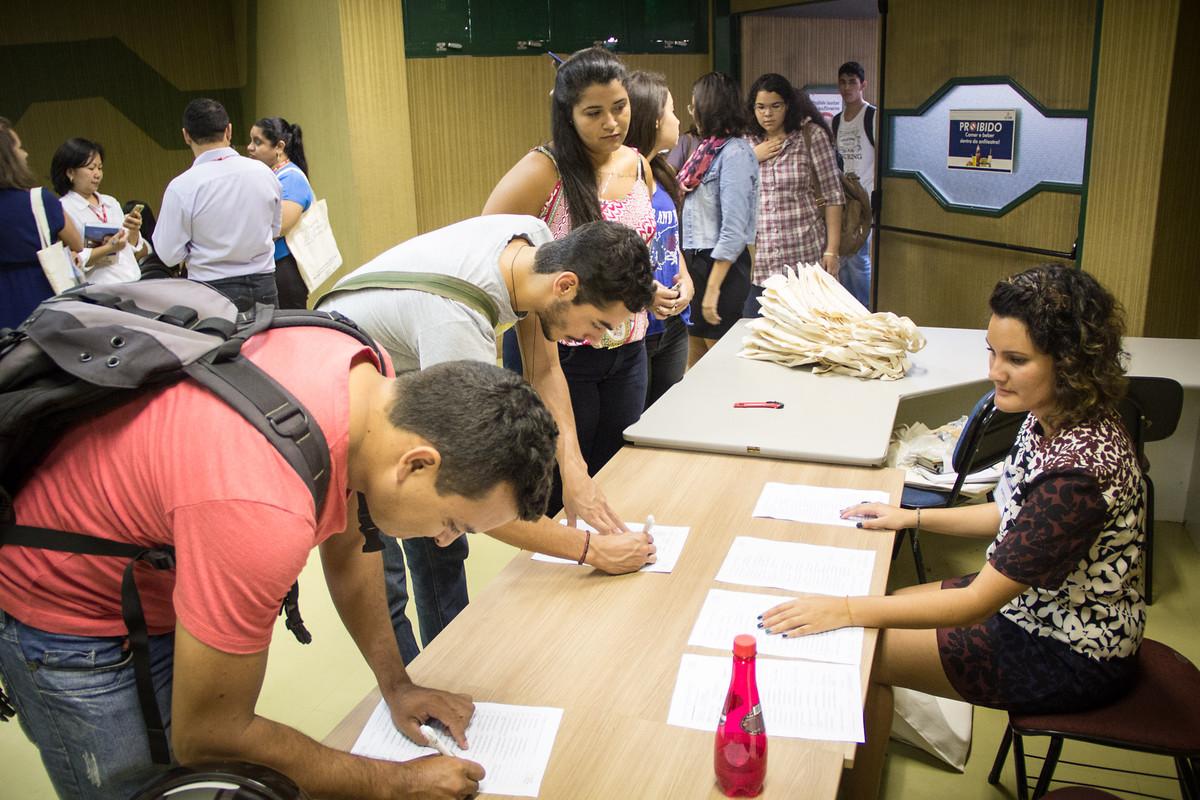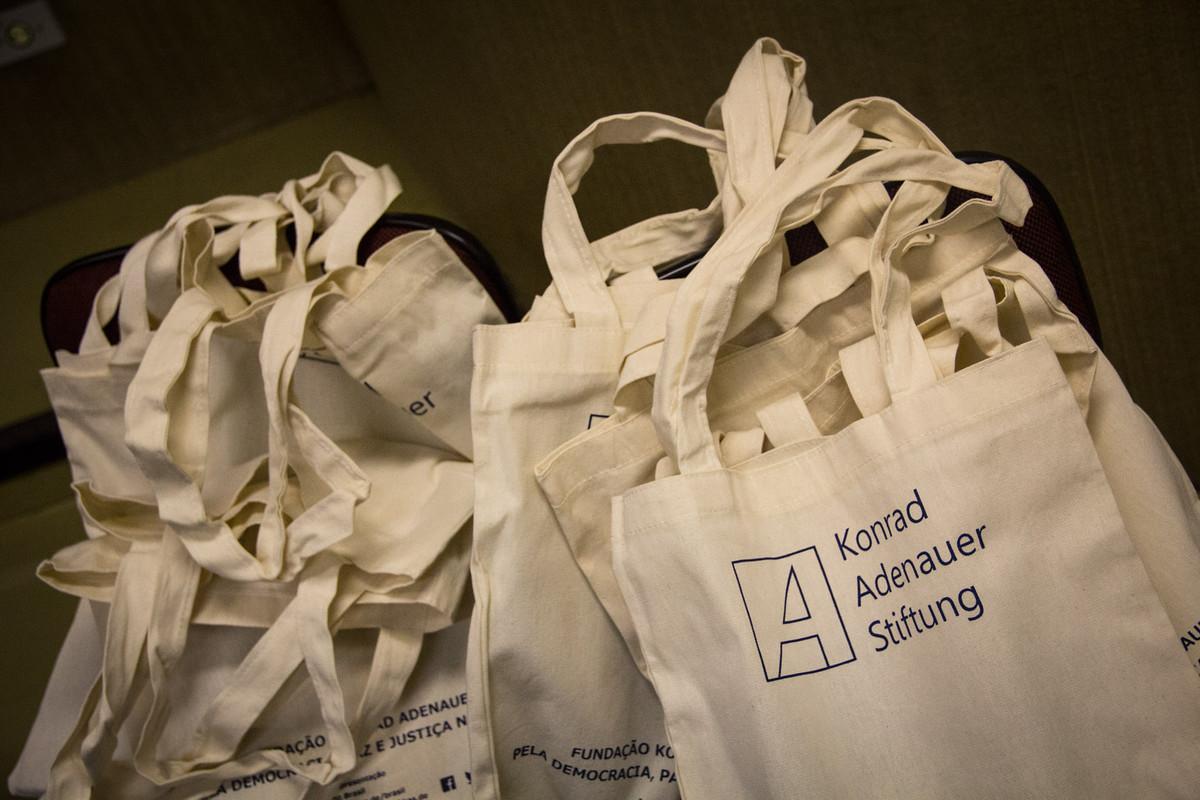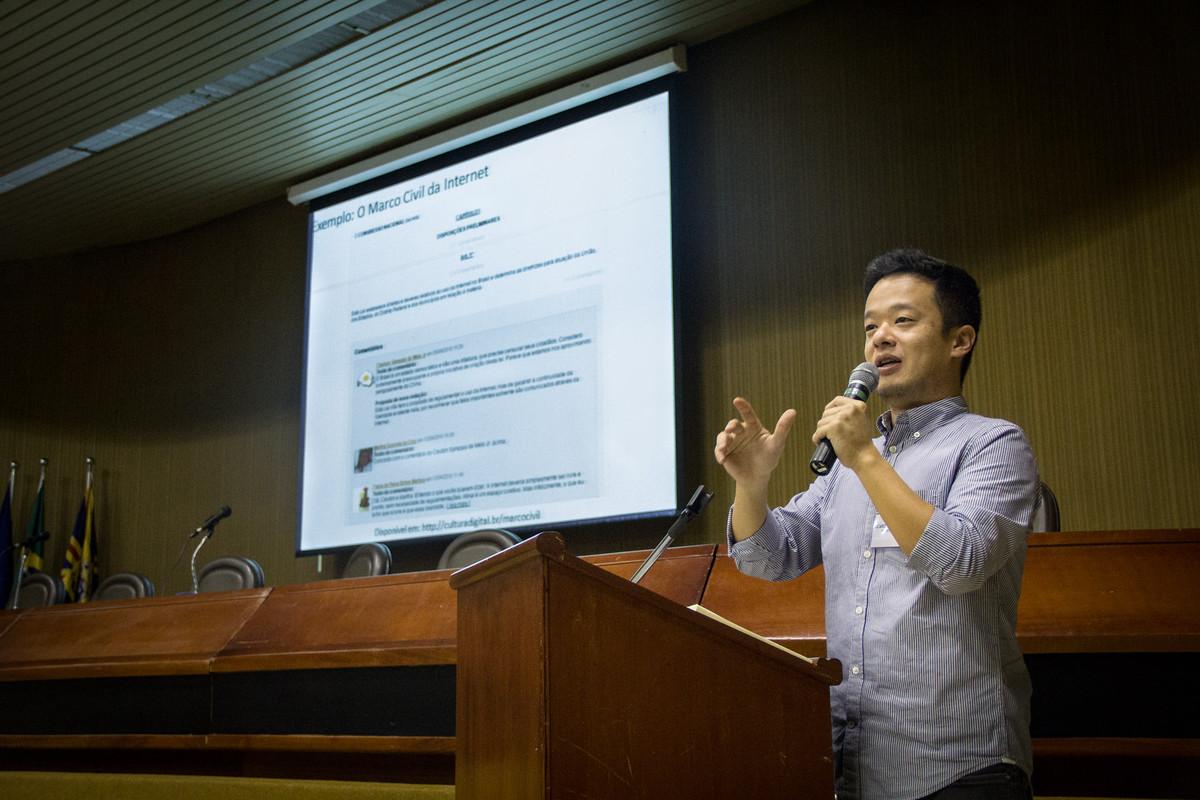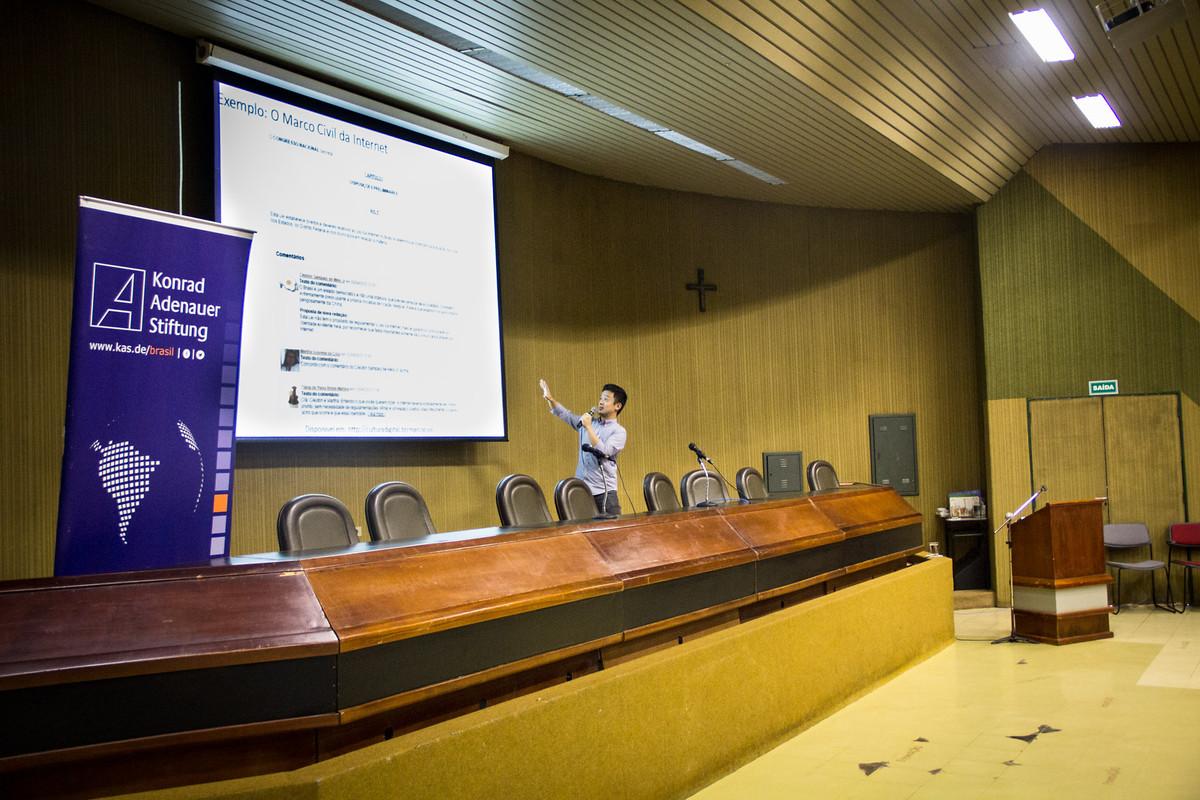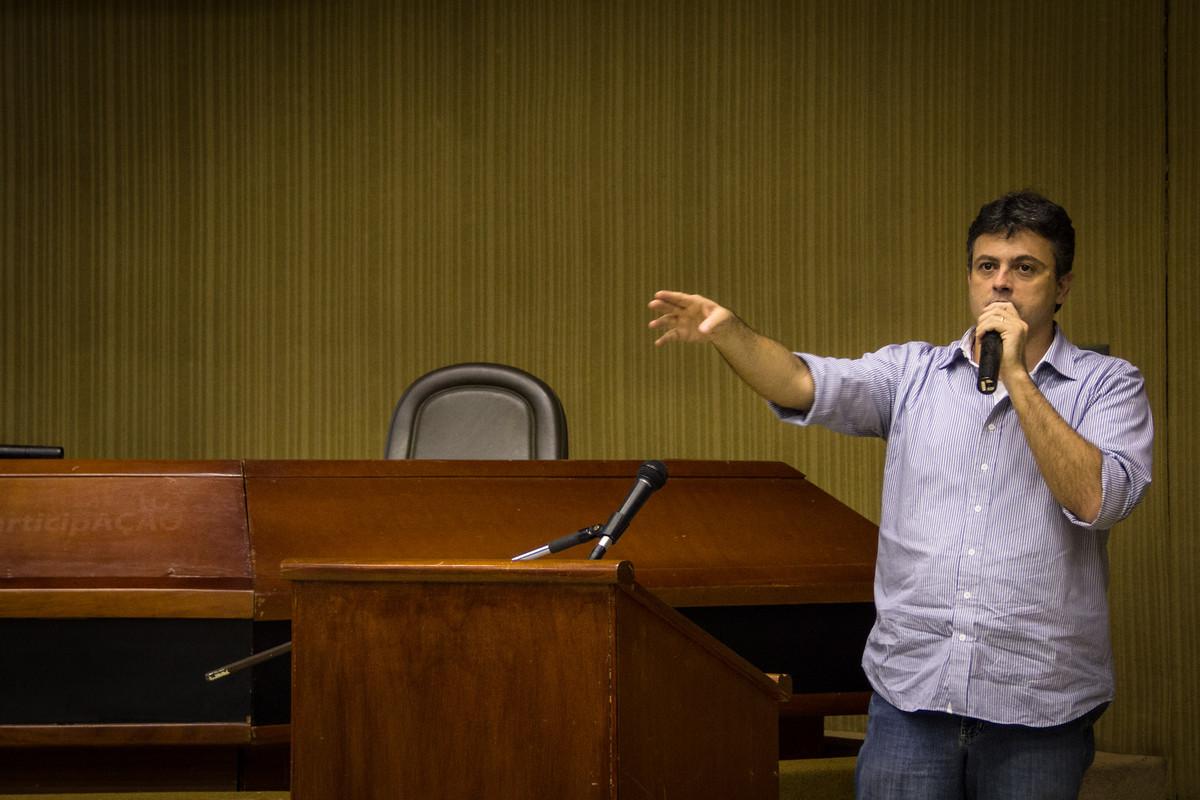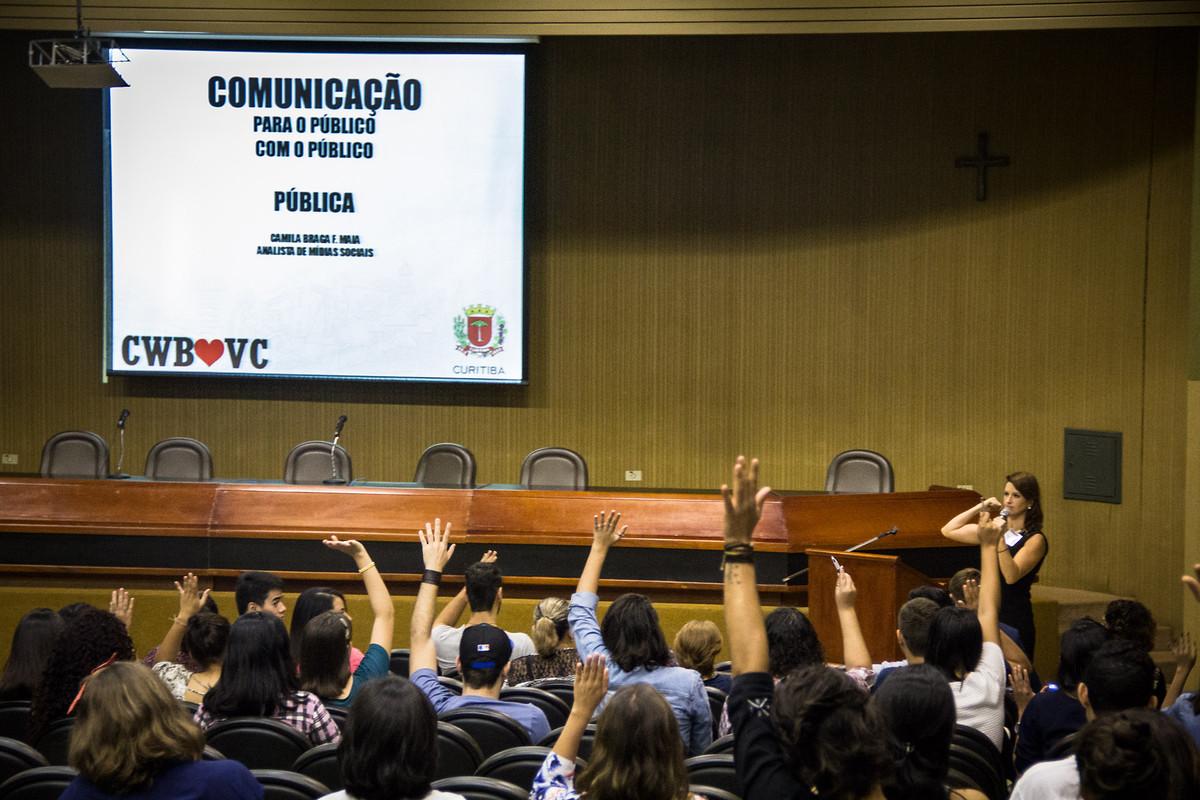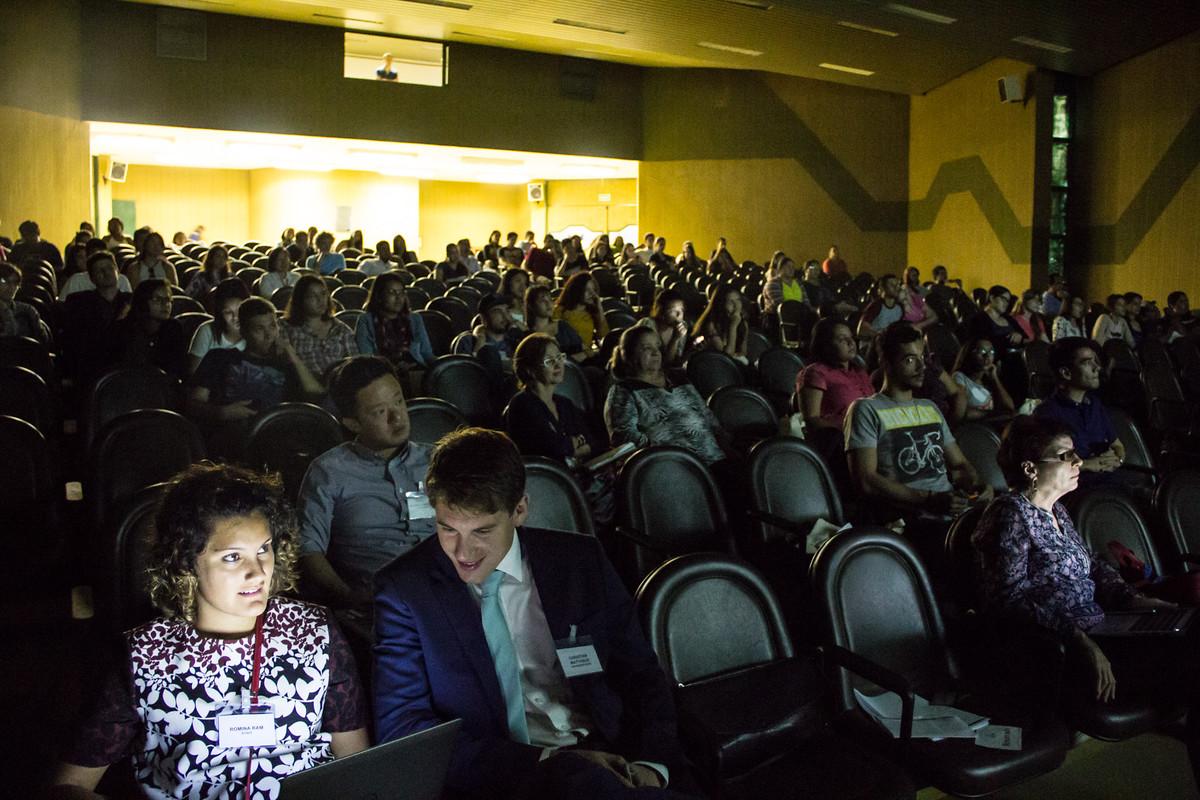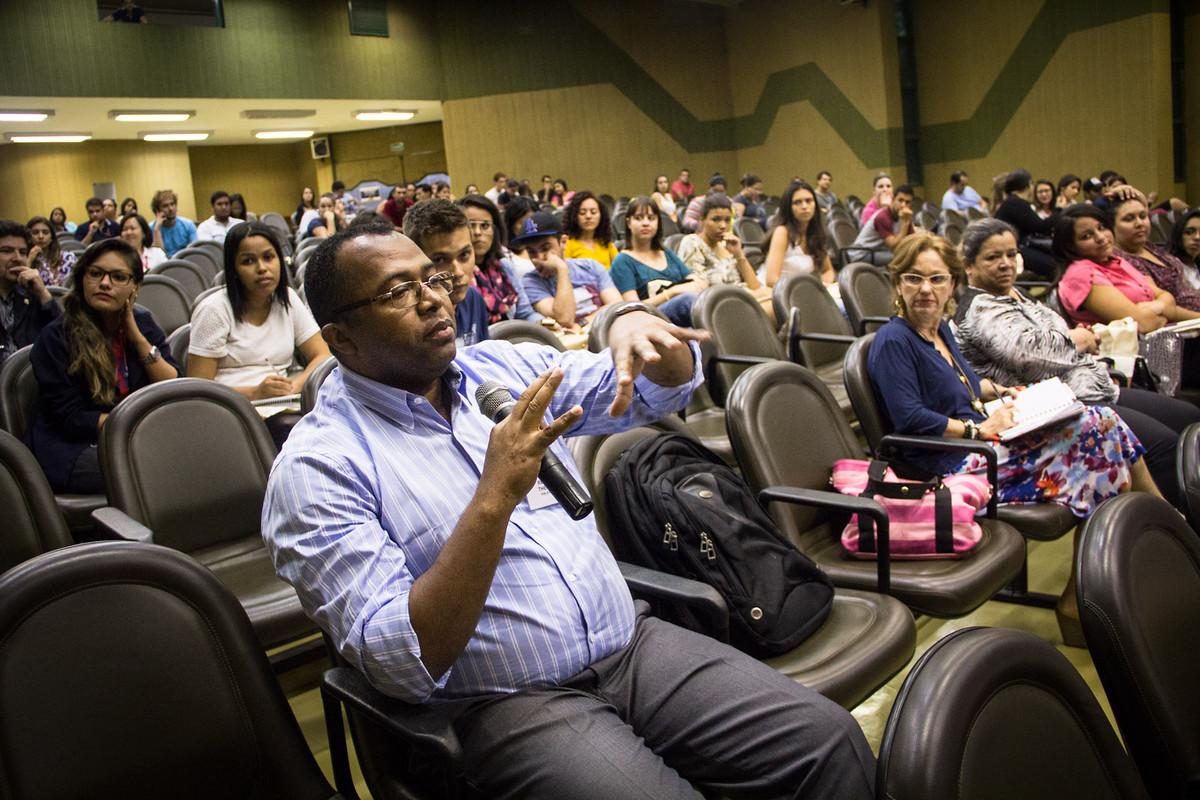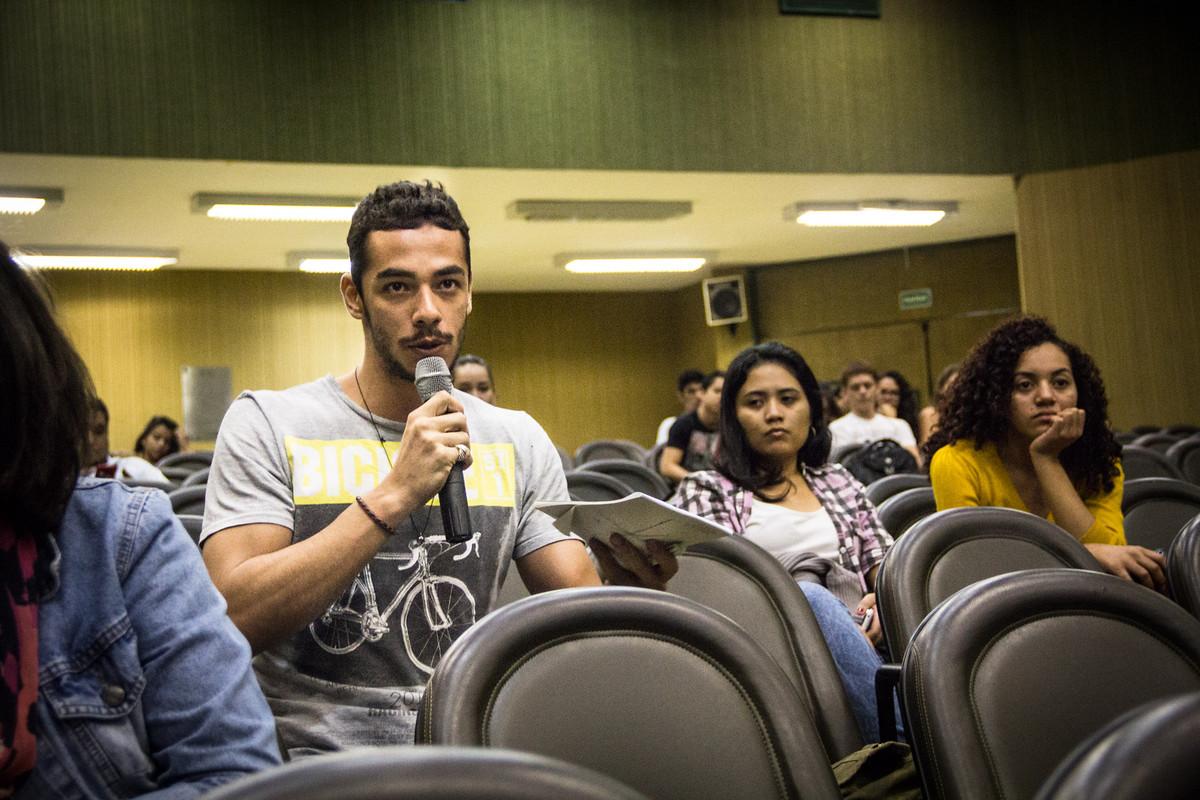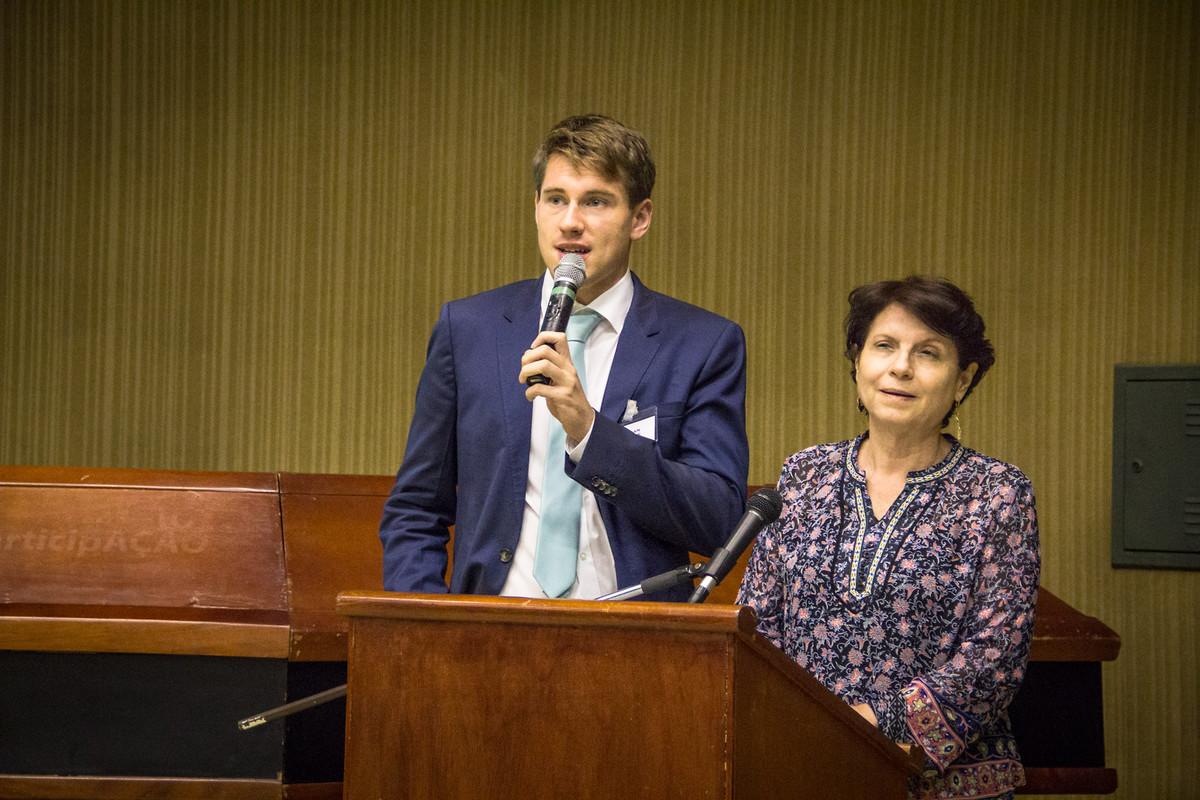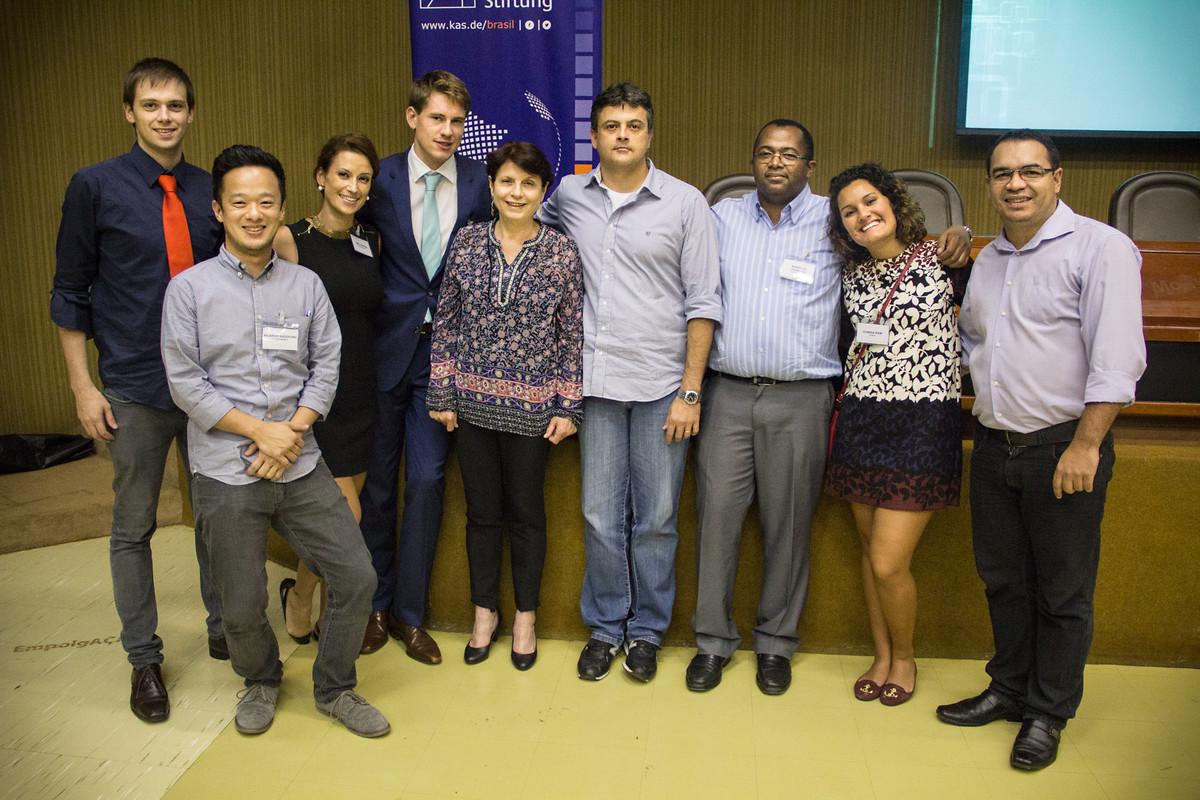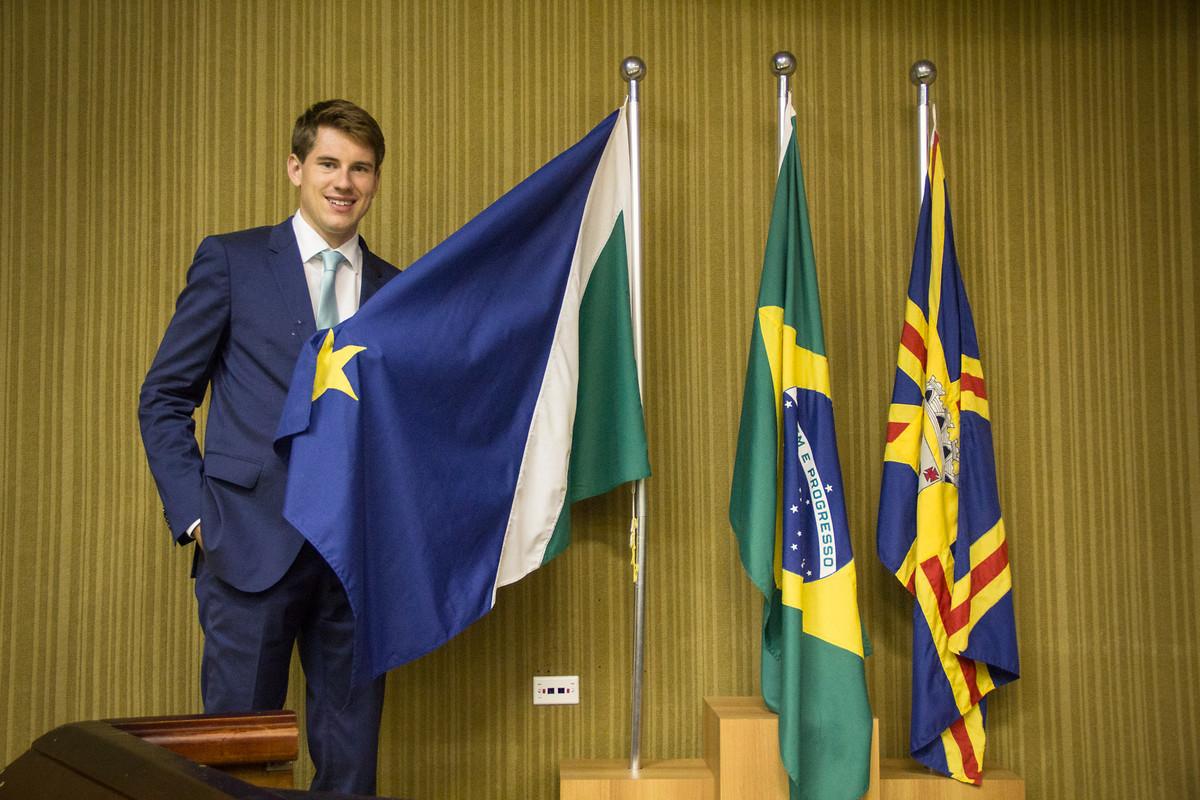Event reports
Ms. Conceição Butera, a professor at the Dom Bosco Catholic University, welcomed the audience and in her opening remarks described the issues to be discussed as the way forward for the consolidation of the Brazilian democratic system at the local, state and federal levels. She underlined the good relationship with Archbishop Dom Dimas, who as a member of KAS Brazil’s advisory board had managed to bring, for the first time in years, an event of the Foundation to Mato Grosso do Sul. Christian Matthäus of KAS Brazil’s academic staff emphasized the speaker’s words regarding the decisive impact on public opinion by social networks, such as Facebook, Twitter, Instagram, particularly with regard to the younger generation. Neither political campaigns nor information transfer by local and state authorities could be conceived or managed without the extensive use of these multibillion-dollar company- controlled platforms. This would pose completely new challenges not only to politics, but also to the economy and to our own perception of the environment and to information. KAS Brazil, in its community-directed activities, has already made extensive use of these new mediums: as of 2012 Virtual Democracy has become a key issue in political education.
Mr. Ricardo Kadouaki, Project Coordinator of the Institute for Technology and Society (ITS) in Rio de Janeiro opened the series of lectures on the theme of "civic participation via social media": According to Mr. Kazouaki, current virtual campaigns – whatever their purpose – provided the framework for civil-society participation. He outlined his thesis based on the 2010 global mass protests for unrestricted freedom of expression, among other issues, not only during the Arab Spring, but also in Turkey, Venezuela, Hong Kong and lastly in Brazil as of 2013. In the latter it became evident that protests organized through social media, became increasingly concrete in their demands. In principle, people would convene more readily when perceived deprivation and discontent would take upper hand, giving rise to a loss in confidence vis-à-vis governmental authorities particularly on the part of socially deprived young people. The Internet was particularly suitable for highlighting current grievances. However, the subsequent logical step would be to submit qualitative and constructive criticism and suggestions - also on the part of governmental decision makers – with the purpose of employing the Internet as a discussion forum. Through his project "Plataforma Brasil" Mr. Kazouaki presented a qualitative discussion alternative to Facebook, whereby transparent proposals might be submitted with the purpose of guaranteeing virtual citizen participation. Topics would be classified in order of priority and subsequently discussed. In this manner, any interested party might submit proposals for political reform in Brazil. It would only require personal motivation and interest in the respective topics. The prerequisite would be to see whether “Plataforma Brasil” would really develop itself as an effective medium for virtual political discussions.
Ms. Camila Braga is responsible for communications via social media in the municipality of Curitiba. She underlined that there are different, often incomprehensible interests, which stimulate individuals to follow profiles on social networks, such as Twitter. Most usually, anything new or unconventional would draw attention to the Internet. With this in mind, she also underlined the virtual organization of protests via use of social media. The issue, however, would be of how and to what extent each individual would be ready to become active through social mediums. Social media opened the doors of governmental departments to citizens, thus obliging the former to bear responsibility for their actions or inactions. This gave rise to increased public scrutiny of whether they actually met public expectations. As a result, Curitiba created its own app whereby inhabitants can draw attention to mismanagement – whether lacking or damaged infrastructure, the misconduct of public authorities or inhabitants or just reporting a transgression, by transmitting an image or a small video via a smartphone or tablet directly to the pertinent authorities. Needless to state that this app has become very popular among the city’s inhabitants. The municipal administration and its offices pledged themselves to reply to any and all inquiries. In the Municipality of Curitiba, pursuant to Ms. Braga, marketing is closely bound to social media and to the voices of its inhabitants. Transparency is on the rise due to the increasing use of social media and the swifter replies to the inhabitants’ direct inquiries. She considers these developments towards increased openness and accountability as consistently advantageous to both male and female inhabitants.
Mr. Emerson Cervi, professor at the State University of Paraná, underlined the connection between conventional activism, which takes place offline, that is to say, in the real world, but is now planned online. Virtual democracy, according to Cervi, is especially suited for discussions regarding specific topics. Particularly worth mentioning is that the personal sites of politicians in social networks bear a much livelier and up-to- date design vis-à-vis those of governmental institutions. Problems would have a bearing on the maintenance of the protection of personal dignity. Unfiltered and personality- hurtful comments on the web – an occurrence more frequent in the run-up to elections – would become visible in their entirety. The value of a comment would, therefore, evaluated by whether it is based on another, and thus confirm empathic reflection. Mr. Cervi presented numerous statistics showing that Internet users frequently exchange only with people who share the same opinion and, thus, are part of a group or sub-group. In this manner, supporters of socialist President Dilma Rousseff very rarely interacted virtually with the followers of the economic liberal-conservative challenger Aécio Neves - and vice versa - whereas the interactions with like-minded most usually followed a given pattern. The openness to new arguments would, therefore, be greatly restricted if, virtually, one would share the same cloud, but shut one’s mind to the opponent’s arguments. This phenomenon was observable on a global basis. In this manner, Mr. Cervi confirmed Mr. Kazouaki’s thesis that the Internet has not yet really brought about a qualitative discussion platform, but, instead, a method of sharing information with like-minded people.
In his presentation “The Brazilian cyber culture”, Mr. Reinaldo Themoteo, sociologist and editor of KAS Brazil, addressed the evolution of the Internet as a medium per se. How this opened unprecedented multi-functionality through apps and new virtual spaces, which provided a subsequent option of the qualitatively important and unimportant contents for each one, albeit rendering the process of choice more difficult. As the 2013 protests in Brazil would show, when spontaneously organized via social networks they could also exert pressure on the ruling parties. The latter would, however, be needed to ensure a dialogue between different thinkers in the first place. So how could political participation be achieved in the most effective and sustainable manner? According to Mr. Themoteo the way forward would be political education and training, both virtually and conventionally. In its principles, the Konrad Adenauer Foundation commits itself to political education, provides further training courses both on and offline with the purpose of strengthening the values and principles of a democratic state.
In his closing remarks, Mr. Christian Matthäus stated that the Internet did indeed have numerous social effects on Brazilian society. In this manner, the nationwide protests of 2013 and 2015 were largely convened over the web bringing millions onto the streets. To call for conventional demonstrations, the "Social Top Dogs" Facebook and Twitter were the most suitable. For sharing images and short videos in real-time Instagram of the Facebook group. However, a qualitative global discussion platform was still lacking. Facebook could not provide this Timeline Feature?. Over the short message service Twitter, characters would be limited to 160 characters rendering the filing of discussions that could be developed further on for years, as unviable “per definitionem”. The initiative of the non-governmental organization ITS and Mr. Kazouaki’s "Plataforma Brasil" would therefore merit further development. Therefore, in future editions of the KAS Seminar Series on Virtual Democracy should maintain the evolution of the platform on its agenda for further discussions and analyzes.



